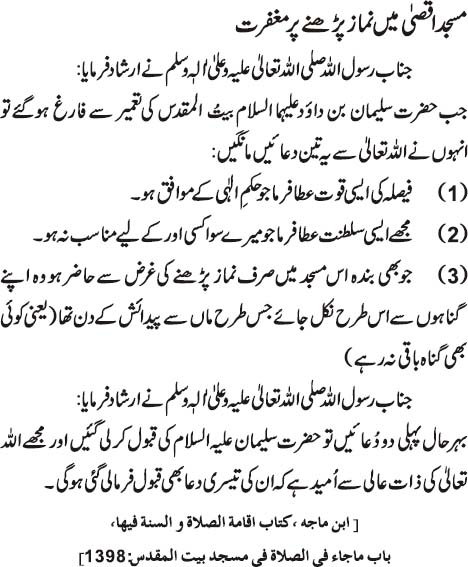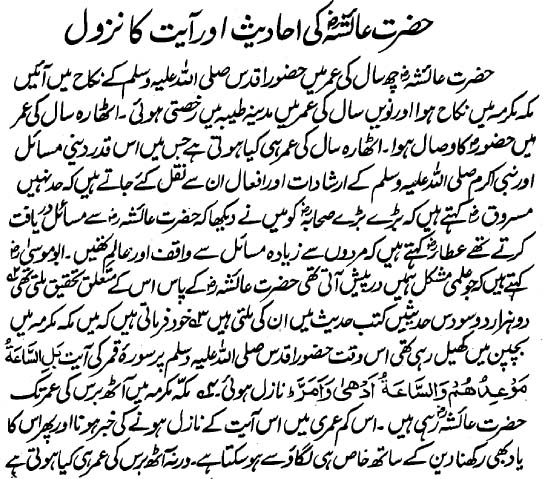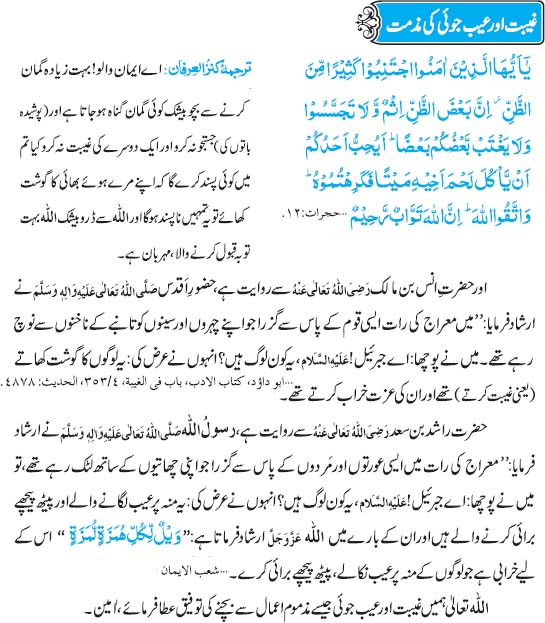
Masjid Al Aqsa Mein Namaz Parhne Par Maghfirat
Excellence Of Greetings
Allah the Exalted says: When you are greeted with a greeting, greet in return with what is better than it.
Abdullah bin Amr (radi Allahu anhu) narrated: A man asked the Prophet (Sallallahu alaihi wasallam) “Whose Islam is better” The Prophet (Sallallahu alaihi wasallam) replied, “To feed (others), and say salam to whom you recognize and (also) whom you do not recognize.”
Abu Huraira (radi Allahu anhu) narrated: Allah’s Messenger (Sallallahu alaihi wasallam) said, “You will not enter Paradise until you believe; and you will not believe until you love one another. Shall I not guide you to a thing which, if you do, you will love one another: spread (the greeting of peace) Salaam amongst yourselves.”
Abu Umamah (radi Allahu anhu) narrated: Allah’s messenger (Sallallahu alaihi wasallam) said,” Indeed the person nearest to Allah the Exalted is the one who is foremost in them in offering Salam.”
Abu Hurrairah (radi Allahu anhu) narrated : Allah’s messenger (Sallallahu alaihi wasallam) said,” The younger person should greet the older one, and the walking person should greet the sitting one, and the smaller number of people should greet the larger number of people.”
Abu Hurairah (radi Allahu anhu) narrated: The Messenger of Allah (Sallallahu alaihi wasallam) said, “A rider should greet a pedestrian, a pedestrian should greet one who is sitting, and a small group should greet a large group (of people).”
Anas bin Malik (radi Allahu anhu) narrated that the Messenger of Allah (Sallallahu alaihi wasallam) passed by some children and greeted them.
Anas (radi Allahu anhu) narrated that the Prophet (Sallallahu alaihi wasallam) used to visit the Ansar and greet their children and patted/touched their heads.
Anas bin Malik (radi Allahu anhu) said: O Messenger of Allah (Sallallahu alaihi wasallam) “Should we bow down for others? He (Sallallahu alaihi wasallam) said No. We said,” Should we embrace one another?” He (Sallallahu alaihi wasallam) said: No, but you should shake hands with one another.
Al Bara (radi Allahu anhu) narrated: Allah’s messenger (Sallallahu alaihi wasallam) said, “Two Muslims will not meet and shake hands without having their sins forgiven before they depart.”
Har Haal Me Allah Ka Zikr

Har Haal Me Allah Ka Zikr
Ubaid And The Temptress
Ubaid ibn Umair Rahimahullah was a pious man who was highly regarded by his contemporaries. At that time, there was a very beautiful woman who lived in Makkah with her husband. One day she was looking at herself in the mirror, and she asked her husband, “Is there any man who will see this face of mine, but will not be tempted by it?”
He replied, “Yes.”
She asked, “Who?”
He answered, “Ubaid ibn Umair.”
She asked, “Do you allow me to tempt and entice him?”
He agreed. She approached Ubaid ibn Umair, pretending to ask him a question of importance. When they were in a corner of Masjidul Haraam she unveiled her face, and it shone like the full moon.
Ubaid asked her, “O slave of Allah, what would you like to ask?”
She replied, “I am infatuated by you. Please consider my request.”
Ubaid replied, “I would like to ask you a few questions. If you reply truthfully, I will consider your request.”
She remarked, “I will most certainly reply truthfully to any questions you pose to me.”
Ubaid asked, “If the angel of death comes to take your soul, would you be pleased that I fulfill your request at that time?”
She replied, “By Allah, never!”
Ubaid then said, “You have been truthful. If you are lowered into your grave and about to be questioned by the angels, would you be pleased that I fulfill your request at that time?”
She replied, “By Allah, never!”
Ubaid then said, “You have been truthful. When people are given their book of deeds, and you do not know whether you will receive yours in your right or left hand, would you be pleased that I fulfill your request at that time?”
She replied, “By Allah, never!”
Ubaid then said, “You have been truthful. If you are about to cross the bridge of Siraat and you do not know whether you will make it across, would you be pleased that I fulfill your request at that time?”
She replied, “By Allah, never!”
Ubaid then said, “You have been truthful. When the scales of deeds are brought, and you do not know whether yours is heavy or light, would you be pleased that I fulfill your request at that time?”
She replied, “By Allah, never!”
Ubaid then said, “You have been truthful. When you are standing before Allah to answer for your deeds, would you be pleased that I fulfill your request at that time?”
She replied, “By Allah, never!”
Ubaid then said to her, “You have been truthful. Fear Allah, O slave of Allah! Allah has bestowed you with bounties and has been kind to you.”
The woman then returned to her husband, who asked, “What happened?”
She replied, “We have been wasting away our lives until now.” She then dedicated her time to Salah, fasting, and other forms of worship. Thereafter, her husband would often remark, “What has Ubaid done to me? Every night she was like a bride, and now she has no inclination to the world.” (Ath Tiqaat, Ajali)
Lesson: A believer who contemplates over these questions at the time of committing a sin will realize his weakness and abstain from the sin.
Jannat Ki Naimat Naimatien Quran Ki Zabani

Jannat Ki Naimat Naimatien Quran Ki Zabani
Etiquette With Visitors
The best action of Islam is to feed the poor. Rasullullah sallAllahu alayhi wasallam has said: “The person who has faith in Allah and in the hereafter, it is necessary for him to be polite to his guests.” (Bukhari)
One remains a guest for three days; thereafter, it is sadaqah. (The host must entertain his guest for three days. More than that, whatever entertainment is made will be regarded as sadaqah).
One should entertain one’s guest with special food for one day and one night. (Bukhari)
A guest should not remain at the host’s place for such a long time that it would either inconvenience or disgust them.
Whoever is invited and does not accept has disobeyed Allah and His Rasul sallallahu alayhi wasallam.
Whoever enters (a house) without invitation (for meals), enters as a burglar and departs as a bandit. (Abu Dawud)
Hazrat Aisha (radi Allahu anha) Ki Ahadith Aur Ayat Ka Nuzool

Hazrat Aisha (radi Allahu anha) Ki Ahadith Aur Ayat Ka Nuzool
Miscellaneous Ahadith Of The Day
Hadith – 1
Narrated Anas bin Malik (May Allah Subhanahu wa ta’ala be pleased with him). The Prophet (May Peace, blessings and mercy of Allah Subhanahu wa ta’ala be on him) said, “Take Suhur as there is a blessing in it.”
Sahih Bukhari: Volume 3, Book 31, Number 146
Hadith – 2
Narrated Aisha (May Allah Subhanahu wa ta’ala be pleased with her) (the wife of the Prophet(May Peace, blessings and mercy of Allah Subhanahu wa ta’ala be on her)), Hamza bin ‘Amr Al-Aslami asked the Prophet (May Peace, blessings and mercy of Allah Subhanahu wa ta’ala be on him), “Should I fast while traveling?” The Prophet replied, “You may fast if you wish, and you may not fast if you wish.”
Sahih Bukhari:Volume 3, Book 31, Number 164
Hadith -3
Narrated Jarir (May Allah Subhanahu wa ta’ala be pleased with him), When I gave the pledge of allegiance to Allah’s Apostle (May Peace, blessings and mercy of Allah Subhanahu wa ta’ala be on him) and he (May Peace, blessings and mercy of Allah Subhanahu wa ta’ala be on him) stipulated that I should give good advice to every Muslim.
Sahih Bukhari:Volume 3, Book 50, Number 875
Hadith -4
Narrated Sahl bin Sad (May Allah Subhanahu wa ta’ala be pleased with him), I used to take my Suhur meals with my family and then hurry up to present myself for the (Fajr) prayer with Allah’s Apostle (May Peace, blessings and mercy of Allah Subhanahu wa ta’ala be on him).
Sahih Bukhari:Volume 3, Book 31, Number 143
Hadith – 5
Narrated Abu Huraira (May Allah Subhanahu wa ta’ala be pleased with him), I heard Allah’s Apostle (May Peace, blessings and mercy of Allah Subhanahu wa ta’ala be on him) saying, “If there was a river at the door of anyone of you, and he took a bath in it five times a day, would you notice any dirt on him?” They said, “Not a trace of dirt would be left.” The Prophet (May Peace, blessings and mercy of Allah Subhanahu wa ta’ala be on him) added, “That is the example of the five prayers with which Allah blots out (annuls) evil deeds.”
Sahih Bukhari: Volume 1, Book 10, Number 506
Hadith – 6
Narrated Abu Huraira (May Allah Subhanahu wa ta’ala be pleased with him), Allah’s Apostle (May Peace, blessings and mercy of Allah Subhanahu wa ta’ala be on him) said, “For every prophet there is one (special invocation (that will not be rejected) with which he appeals (to Allah), and I want to keep such an invocation for interceding for my followers in the Hereafter.”
Sahih Bukhari: Volume 8, Book 75, Number 317
Hadith – 7
Narrated Abu Huraira (May Allah Subhanahu wa ta’ala be pleased with him), Allah’s Apostle (May Peace, blessings and mercy of Allah Subhanahu wa ta’ala be on him) said, “When Allah completed the creation, He wrote in His Book which is with Him on His Throne, “My Mercy overpowers My Anger
Sahih Bukhari:Volume 4, Book 54, Number 416
Gheebat Aur Aib Joi Ki Muzammat

Gheebat Aur Aib Joi Ki Muzammat
Allah’s Saying: O My Servants
Allah’s Saying: O My Servants
[Sahih Muslim: Book 32, Number 6246]
Abu Dharr (Radi Allah Anhu) reported Allah’s Messenger (sal-allahu-alleihi-wasallam) as saying that Allah, the Exalted and Glorious, said: “O My servants, I have made oppression unlawful for Me and unlawful for you, so do not commit oppression against one another.”
“O My servants, all of you are liable to err except one whom I guide on the right path, so seek right guidance from Me so that I should direct you to the right path.
“O My servants, all of you are hungry (needy) except one whom I feed, so beg food from Me, so that I may give that to you.”
“O My servants, all of you are naked (need clothes) except one whom I provide garments, so beg clothes from Me, so that I should clothe you.”
“O My servants, you commit error night and day, and I am there to pardon your sins, so beg pardon from Me so that I should grant you pardon.”
“O My servants, you can neither do Me any harm nor can you do Me any good.”
“O My servants, even if the first amongst you and the last amongst you and even the whole of the human race of yours, and that of jinns even, become (equal in) God-conscious like the heart of a single person amongst you, nothing would add to My Power.”
“O My servants, even if the first amongst you and the last amongst you and the whole human race of yours and that of the Jinns too in unison become the most wicked (all beating) like the heart of a single person, it would cause no loss to My Power.”
“O My servants, even if the first amongst you and the last amongst you and the whole human race of yours and that of jinns also all stand in one plain ground, and you ask Me and I confer upon every person what he asks for, it would not. In any way, cause any loss to Me (even less) than that which is caused to the ocean by dipping the needle in it.”
“O My servants, these for you I shall reward you for than, so he who deeds of yours which I am recording finds good should praise Allah and he who does not find that should not blame anyone but his own self.”
Sa’id said that when Abu Idris Khaulini (Radi Allah Anhu) narrated this hadith, he knelt upon his knees.
Our Lord! Grant us good in this world and good in the hereafter, and save us from the chastisement of the fire.

